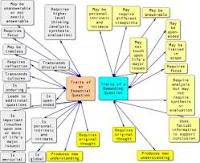Feeling Like a “Bad” Parent of a Child on the Autism Spectrum

“My son Noah age 10 has been diagnosed with autism (high functioning). He has always been difficult at home, and now I am getting repeated bad reports from his online teacher. Honestly, I feel like I’ve failed my son. I feel like I'm losing my mind at times just trying to make his life easier. Add my other kids too, and it is just pure chaos or eggshells to try to keep Noah from an episode. I’ve tried everything I know to do to help, but my son still remains a mystery at times. All I know to do is keep trying and try to be patient, calm, and strong. I would be curious to know if there are any other parents that feel like they ‘should have’ done a better job. Is it normal to feel like a ‘bad’ parent in this case?” Discovering a youngster’s special needs is often a puzzling and agonizing process for parents. It’s no surprise that your son with High-Functioning Autism (HFA) often mystifies you. As with all children on the autism spectrum, your son has many skills – and deficit







